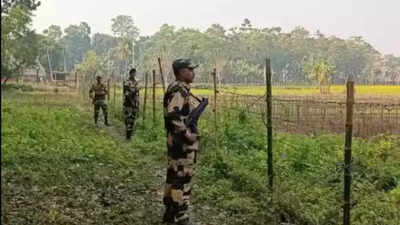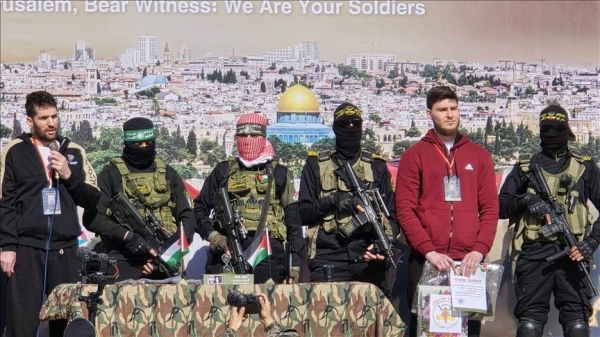
NEW DELHI: Border Guard Bangladesh (BGB), at the Director General-level border coordination conference between BSF and BGB here, formally objected to construction of single-row fence (SRF) by the Border Security Force (BSF) within 150 yards of the Indo-Bangladesh border, seeking a fresh joint inspection “where there are issues” and renegotiation of the terms, including how close to the ‘zero line’ can the fence be built.
“It has been requested that we do a joint inspection and joint record of discussion on the ground very elaborately so that the fencing or further progress can happen,” the BGB DG told media persons at a joint press conference with BSF DG Daljit Singh Chawdhary after the conclusion of the biannual DG-level border talks here.
BSF, however, has not agreed to any renegotiation of terms, which sources said are as per the joint record of discussions (JRD) already finalised in the past between BSF and BGB and duly ratified by the then Bangladesh govt. A senior official said the BSF stance is guided by the principle of continuity, which applies to bilateral pacts irrespective of the government in office in the signatory nations.
BSF is erecting SRF at around 90 points along the Indo-Bangladesh border where fencing was found feasible only within 150 yards of the zero line, also known as “no man’s land”. Siddique on Thursday indicated the BGB’s request for a fresh joint inspection and joint record of discussion is based on the assessment that “proper mutual consenting is yet to be done or could be done in a better manner”.
“How far back from the zero line the fence should be, was always a matter of discussion,” said the BGB DG.
At the press conference, Siddique played down the attacks on minorities in Bangladesh post the regime change in August 2024, saying they were “an exaggeration of the media” and claiming that minorities were safe in his country. This comes days after the Indian ministry of external affairs told the Lok Sabha that there were reports of 23 Hindus having died and 152 incidents of attacks on Hindu temples in Bangladesh since the new regime took over.
MEA informed the LS on Feb 7 that Dhaka, in a press release dated December 10, 2024, had announced that 88 cases relating to such attacks were registered, leading to the arrest of 70 people. had said subsequent police investigations verified 1,254 incidents. It also pointed to reports of 76 attacks on Hindus in Bangladesh between Nov 26, 2024 and Jan 25, 2025.
The BGB DG, while claiming that “attacks on minorities (in Bangladesh) per se did not happen,” cited the “most peacefully organised” Durga Puja celebrations as proof. He said the law enforcement agencies (LEAs) were strictly tasked by the new regime in Dhaka to ensure that the Hindu community could observe the festival.
“BGB jurisdiction is within 8 km of the international boundary, and BGB personally provided security at several puja pandals there,” he said while claiming that the attacks were not directed at minorities but linked to the “political problem” there. He said though there was some fear among minorities on the ground, the Bangladeshi LEAs and BGB could convince them against any need to migrate. He said the minorities were given security as requested in the couple of months following the regime change, and added that the offer of security stands if any threat is perceived in the future.
BSF DG Chawdhary shared that cross-border infiltration had substantially reduced after August 5, the day Sheikh Hasina regime was unseated, with both BSF and BGB stepping up operational deployment.
On BGB’s objections to killing of Bangladeshi miscreants trying to infiltrate into India under night cover, Chawdhary said the force strictly follows the protocol of graded escalation, using lethal force only as a last resort and with full restraint.
.png)
 German (DE)
German (DE)  English (US)
English (US)  Spanish (ES)
Spanish (ES)  French (FR)
French (FR)  Hindi (IN)
Hindi (IN)  Italian (IT)
Italian (IT)  Russian (RU)
Russian (RU)  2 days ago
2
2 days ago
2









Comments